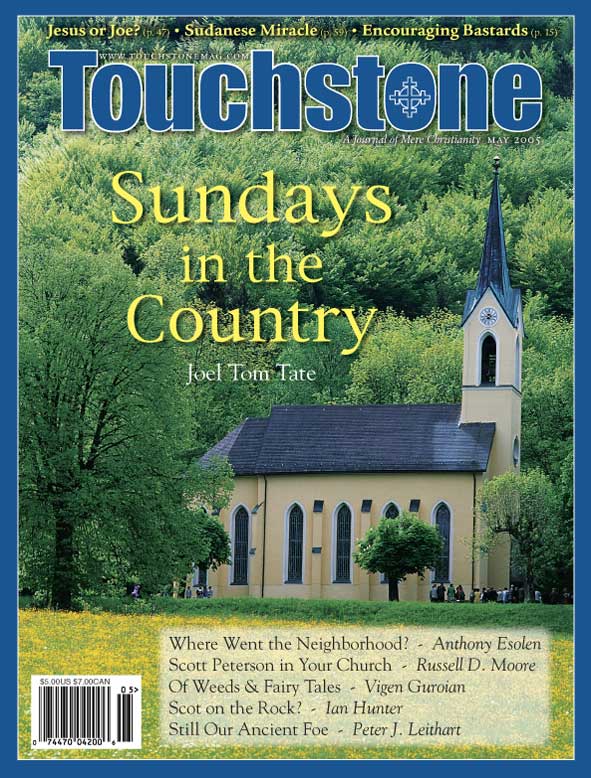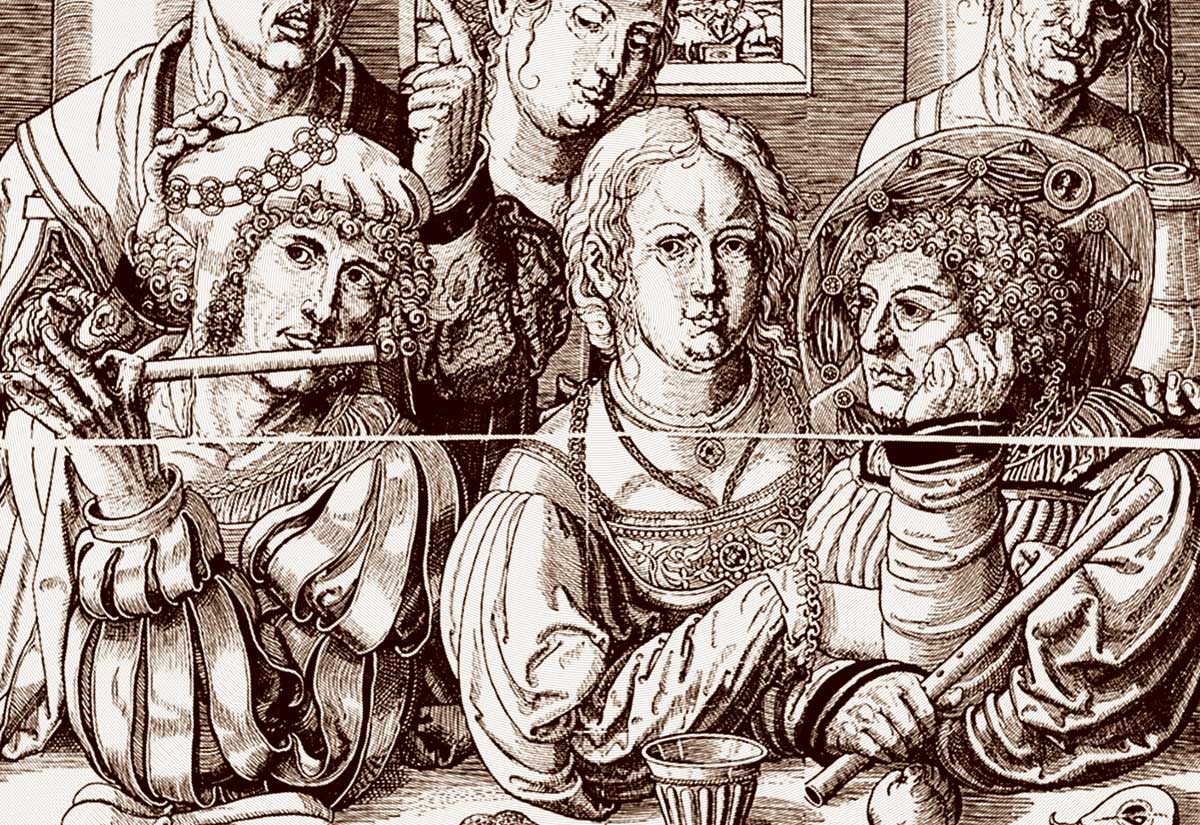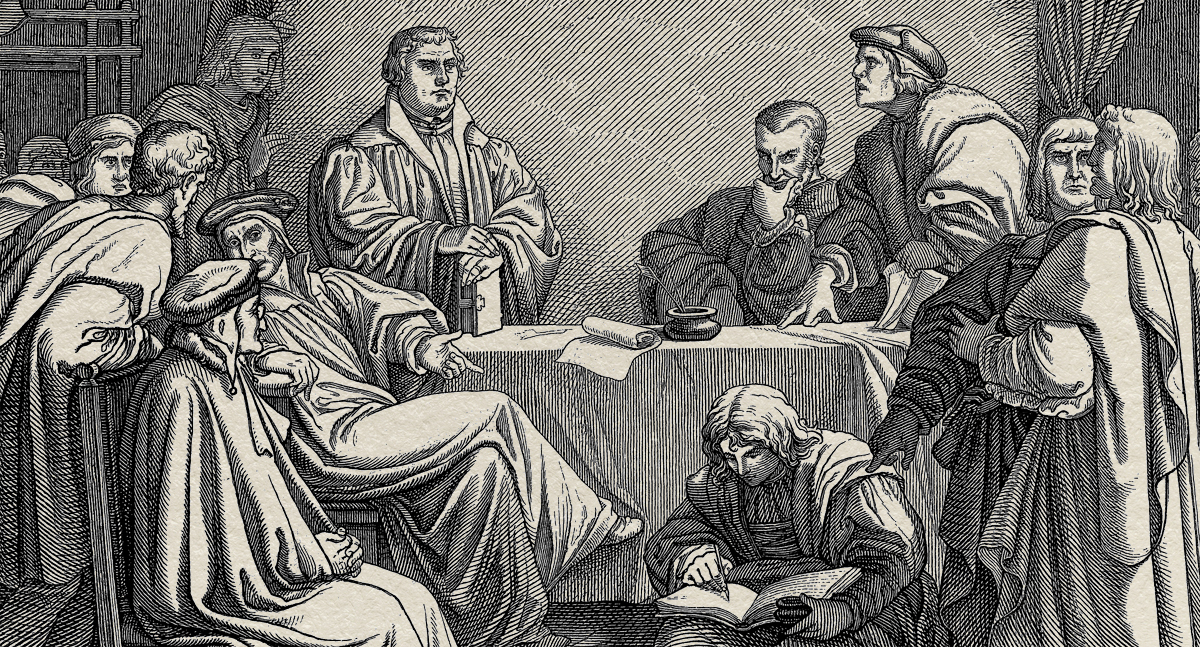Feature
Of Weeds & Fairy Tales
The Idylls, Idols & Devils That Corrupt the Moral Imagination
I am a gardener, and the good essay on gardening pays attention to the characteristics and habits of weeds. This is an essay on the moral imagination, and so I must pay attention to some of the worst and most unholy forms of imagination, forms that spread like the weeds in an ill-kept flower garden and choke out the best cultivars.
Too many people naively associate the imagination solely or even primarily with what is moral and good. Keats went too far when he rhapsodized: “I am certain of nothing but the holiness of the heart’s affections and the truth of imagination—what the imagination seizes as beauty must be truth.” The human heart’s desires may not be holy and the imagination born of these unholy desires may even be demonic. After all, it was the tyrant Napoleon who hauntingly declared, “Imagination rules the world.”
The Book of Proverbs declares, “Where there is no vision, the people perish.” Where there is no real moral imagination, itself a form of vision, the people will become captives of corrupt and corrupting imaginations, for while imagination as such may be an innate human capacity, it needs proper nurture and cultivation. If the tea rose is not properly attended, it withers, and the thistle grows in its place. If the moral imagination is not fed by religious sentiment and supported by reason, it will wither and be replaced by the corrupt forms of imagination.
Thus, I need to name and describe three forms of imagination that flourish in the ill-kept garden of our society, weeds that are crowding out the flowering of the moral imagination. These I am calling the idyllic imagination, the idolatrous imagination, and the diabolic imagination.
Stories We Live By
Our society is failing to cultivate the moral imagination in part at least because very often the stories we live by—the stories we read ourselves or read to our children, the stories we watch on television or at the movies—are not stories that grow the moral imagination, but stories that crowd it out. Others have testified to the lively manner in which the traditional myths and fairy tales feed and nurture the moral imagination, especially in the young—but not exclusively the young, for they were invented for the entertainment and edification of adults.
Imagination illuminates reason, gives it sight and insight. In Enemies of the Permanent Things, Russell Kirk reminded us that “the story of Pandora, or Thor’s adventure with the old woman and her cat, gives any child insight into the conditions of existence, dimly grasped at the moment, perhaps, but gaining in power as the years pass, that no utilitarian ‘real life situation’ fiction can match.” Through “the wisdom latent in traditional fantasy” the child learns early in life “that valid if complex means of normative judgment [are] produced by the conjunction of a great variety of little proofs, illustrations, and inferences.”
The telling and reading of such stories is “a natural activity,” J. R. R. Tolkien noted in his famous essay “On Fairy-Stories.”
It certainly does not destroy or even insult Reason; and it does not either blunt the appetite for, nor obscure the perception of, scientific verity. . . . For creative fantasy is founded upon the hard recognition that things are so in the world as it appears under the sun, on the recognition of fact, but not slavery to it. . . . If men could not distinguish between frogs and men, fairy-tales about frog-kings would not arise. (my emphasis)
Children find frog-princes interesting because reason tells them they are incomplete, not entirely whole. They are attracted to the story of “The Ugly Duckling” or “The Little Lame Prince” because reason tells them, based upon simple observation, that they are in some sense ugly or lame with respect to adults. When they long for the day when they are equal in strength and capacity to grown-ups, the imagination comes into its own.
Vigen Guroian was, until his retirement, Professor of Religious Studies in Orthodox Christianity at the University of Virginia in Charlottesville. His books include Tending the Heart of Virtue: How Classic Stories Awaken a Child's Moral Imagination (2002) and The Orthodox Reality: Culture, Theology, and Ethics in the Modern World (Baker Academic, 2018).
subscription options
Order
Print/Online Subscription

Get six issues (one year) of Touchstone PLUS full online access including pdf downloads for only $39.95. That's only $3.34 per month!
Order
Online Only
Subscription

Get a one-year full-access subscription to the Touchstone online archives for only $19.95. That's only $1.66 per month!
bulk subscriptions
Order Touchstone subscriptions in bulk and save $10 per sub! Each subscription includes 6 issues of Touchstone plus full online access to touchstonemag.com—including archives, videos, and pdf downloads of recent issues for only $29.95 each! Great for churches or study groups.
Transactions will be processed on a secure server.
more on imagination from the online archives

11.5—September/October 1998
Speaking the Truths Only the Imagination May Grasp
An Essay on Myth & 'Real Life' by Stratford Caldecott
more from the online archives
calling all readers
Please Donate
"There are magazines worth reading but few worth saving . . . Touchstone is just such a magazine."
—Alice von Hildebrand
"Here we do not concede one square millimeter of territory to falsehood, folly, contemporary sentimentality, or fashion. We speak the truth, and let God be our judge. . . . Touchstone is the one committedly Christian conservative journal."
—Anthony Esolen, Touchstone senior editor












